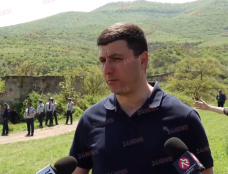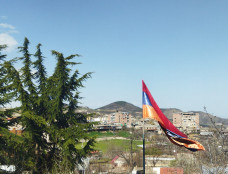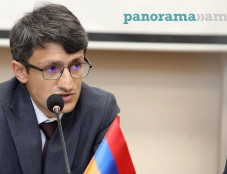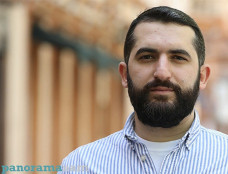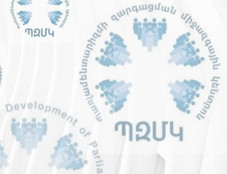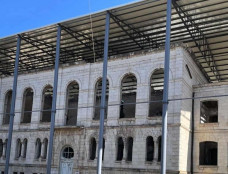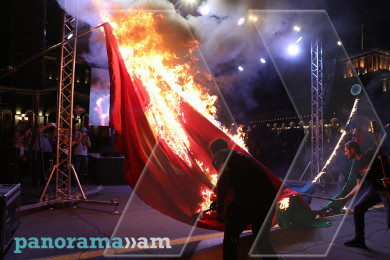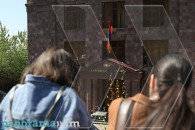
West's death squad strategy: How and why ISIS & Al-Qaeda became ‘shock troops’ of global powers
By Dan Glazebrook, RT
Friday’s ISIS suicide bombings in Yemen and Saudi Arabia – killing a total of at least 43 people – is yet more bitter fruit of the policy pursued by Britain, the US and France and their Gulf allies for the past eight years.
This strategy – of fostering violently sectarian anti-Shiite militias in order to destroy Syria and isolate Iran – is itself but part of the West’s wider war against the entire global South by weakening any independent regional powers allied to the BRICs countries, and especially to Russia.
The strategy was first revealed as far back as 2007 in Seymour Hersh’s article “The Redirection", which revealed how Bush administration officials were working with the Saudis to channel billions of dollars to sectarian death squads whose role would be to “throw bombs… at Hezbollah, Moqtada al-Sadr, Iran and at the Syrians,” in the memorable words of one US official.
More evidence of precisely how this strategy unfolded has since been revealed. Most recently, last Monday saw the release of hundreds of pages of formerly classified US Defense Intelligence Agency (DIA) documents following a two year court battle in the US.
These documents showed that, far from being an unpredictable “bolt from the blue,” as the mainstream media tends to imply, the rise of ISIS was in fact both predicted and desired by the US and its allies as far back as 2012.
The DIA report, which was widely circulated amongst the various US military and security agencies at the time, noted: “There is the possibility of establishing a declared or undeclared Salafist principality in Eastern Syria, and this is exactly what the supporting powers to the opposition want, in order to isolate the Syrian regime which is considered the strategic depth of the Shia expansion (Iraq and Iran).” Elsewhere, the “supporting powers to the opposition” are defined as “Western countries, the Gulf states and Turkey”.
In other words, a Salafist – that is militantly anti-Shia – “principality” was “exactly” what the West wanted as part of their war against not only Syria, but “Shia expansion” in Iraq as well. Indeed, it was specifically acknowledged that “ISI [the forerunner of ISIS] could also declare an Islamic state through its union with other terrorist organizations in Iraq and Syria.”
The precision of the declassified predictions is astounding. Not only was it predicted that the terrorist groups being supported by Washington and London in Syria would team up with those in Iraq to create an “Islamic State,” but the precise dimensions of this state were also spelt out: recognizing that “the Salafist[s], the Muslim Brotherhood, and AQI are the major forces driving the insurgency in Syria.” The report noted that the consequences of this for Iraq would be to “create the ideal atmosphere for AQI [Al Qaeda Iraq] to return to its old pockets in Mosul and Ramadi.”
Mosul, don’t forget, was taken by ISIS in June 2014, and Ramadi fell earlier this week.
Recent months have seen the West and its regional allies massively stepping up their support for their anti-Shiite death squads. In late March, Saudi Arabia began its bombardment of Yemen following military gains made by the Houthi (Shiite) rebels in that country. The Houthis, the only effective force fighting Al Qaeda in the country, had taken key territories from them last November, and were subsequently threatening them in their remaining strongholds. This was when the Saudis began their bombardment, with US and British support, naturally, and, unsurprisingly, Al Qaeda have been the key beneficiary of this intervention, gaining a breathing space and regaining valuable lost territory, retaking the key port of Mukulla within a week of the commencement of the Saudi bombardment.
Al Qaeda have also been making gains in Syria, taking two major cities in Idlib province last month following a ramping up of military support from Turkey, Qatar and Saudi Arabia. And of course, Britain has been leading the way for a renewed military intervention in Libya in the guise of a “war against people smuggling” that, as I have argued elsewhere, will inevitably end up boosting the most vicious gangs involved in the trade, namely ISIS and Al Qaeda.
So why the sudden urgency on the part of the West and its allies to step up support for Al Qaeda et al now?
The answer lies in the increasing disgust at the activities of the death squads across the region. No longer perceived as the valiant freedom fighters they were depicted as in 2011, their role as shock troops for the West’s “divide and ruin” strategy, promising nothing but a future of ultra-violent trauma and ethnic cleansing, has become increasingly obvious. The period between mid-2013 and mid-2014 saw a significant turning of the tide against these groups.
It began in July 2013 with the ouster of Egypt’s President Mohamed Morsi following fears he was planning to send in the Egyptian army to aid the Syrian insurgency. New President Abdel Fattah Al-Sisi put an end not only to that possibility, but to the flow of fighters from Egypt to Syria altogether. The West hoped to step in the following month with airstrikes against the Syrian government, but their attempts to ensure Iranian and Russian acquiescence in such a move came to nought and they were forced into a humiliating climbdown.
Then came the fall of Homs in May 2014, as Syrian government forces retook a key insurgent stronghold. The momentum was clearly with the government side; that is until ISIS sprang onto the scene – and with them, a convenient pretext for a US-led intervention that had been ruled out just a year before.
Meanwhile, in Libya, the pro-death squad parties decisively lost elections to the first elected House of Representatives in June 2014. Their refusal to accept defeat led to a new chapter in the post-NATO Libyan disaster, as they set up a new rival government in Tripoli and waged war on the elected parliament. Yet following a massacre of Egyptians by ISIS in Libya in February of this year, Egypt sent its airforce in on the side of the Tobruk (elected) parliament; it is now, apparently, considering sending in ground troops.
Losing ground in Yemen, in Libya, in Egypt and in Syria, the West’s whole strategy for using armed Salafists as tools of destabilization was starting to unravel. Thank goodness, people in certain quarters must be thinking, for ISIS.
Newsfeed
Videos






